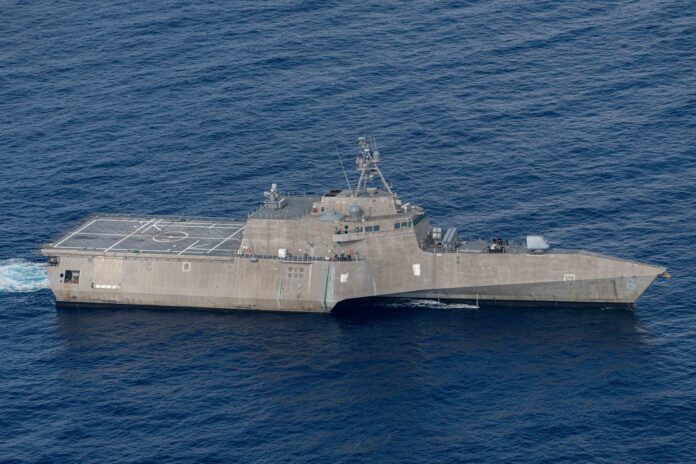
Royal Thai and U.S. navies begin maritime training during the 28th annual Cooperation Afloat Readiness and Training (CARAT) exercise, May 23.
Taking place in the Gulf of Thailand, the exercise highlights U.S. and Thailand’s cooperation to ensure a free and open Indo-Pacific that is vital to regional peace, security, and stability.
“Twenty eight years of CARAT Thailand represents the longstanding alliance between the people of Thailand and the United States,” said Cmdr. Brian Bungay, commanding officer, USS Jackson (LCS 6). “We value these opportunities to work with the Royal Thai Navy, promoting regional security cooperation, and strengthening and enhancing our ability to work together while underway.”
The countries will demonstrate their ability to work together through numerous events including tactics designed to enhance communication as ships sail together in complex maneuvers. The exercise includes maritime domain awareness tracking with a P-8 aimed at increasing both navies’ ability to track and pursue targets beyond visual range, and both navies practiced helicopter cross-deck landings in addition to search and rescue training.
Subject matter expert exchanges featured a variety of joint training opportunities aimed at boosting participants’ capability and knowledge.
The at-sea phase will take place in territorial and international waters near Sattahip and Ko Samui, where USS Jackson (LCS 6) and a P-8A Poseidon aircraft assigned to Commander, Task Force (CTF) 72 will join with ships and aircraft from the Royal Thai Navy for training focused on building interoperability and strengthening relationships.
Royal Thai Navy ships at-sea include the HTMS Naresuan (FFG 421) and HTMS Bhumibol Adulyadej (FFG 471).
“The Royal Thai Navy considers this exercise very valuable in developing knowledge, competency, and experience for its own personnel,” said Vice Admiral Pisal Meesri, Deputy Commander-in-Chief Royal Thai Fleet. “I am confident that all participating forces will benefit from the professional sharing, field practice, and sea-phase training.”
Beginning in 1995, CARAT builds upon other engagements in South Asia, Southeast Asia and the Indo-Pacific. Each CARAT exercise features professional symposia and a robust at-sea phase that incorporates complex evolutions to increase combined operations. Both feature a broad range of naval competencies ranging from explosive ordnance disposal and live-fire gunnery exercises to search-and-rescue and humanitarian assistance and disaster response.
Attached to DESRON 7, Jackson is on a rotational deployment to the U.S. 7th Fleet area of operations in support of security and stability in the region, and to work alongside allied and partner navies to provide maritime security and stability, key pillars of a free and open Indo-Pacific.
As the U.S. Navy’s forward-deployed destroyer squadron in Southeast Asia, DESRON 7 serves as the primary tactical and operational commander of littoral combat ships rotationally deployed to Singapore, functions as Expeditionary Strike Group 7’s Sea Combat Commander, and builds partnerships through training exercises and military-to-military engagements.












